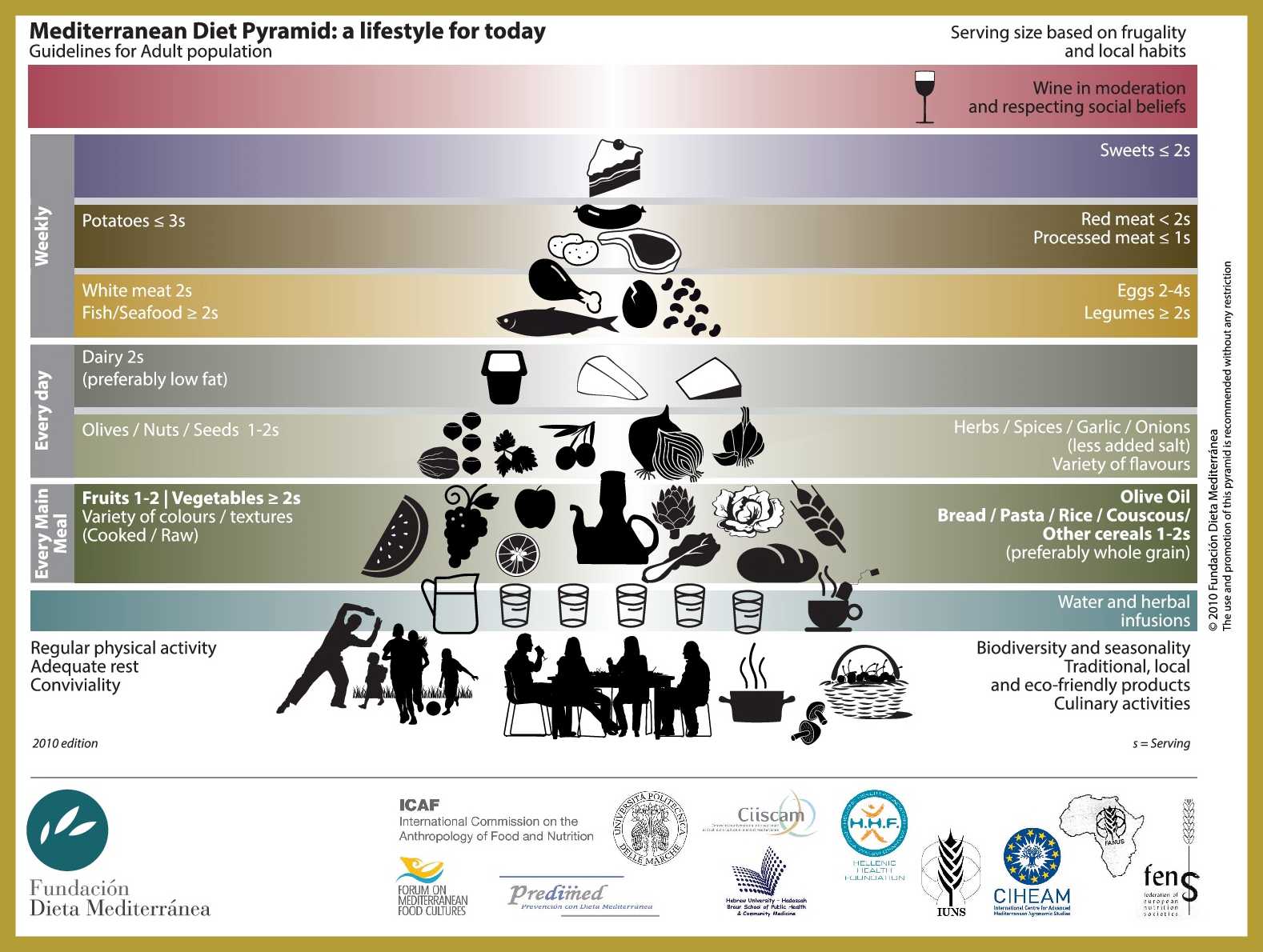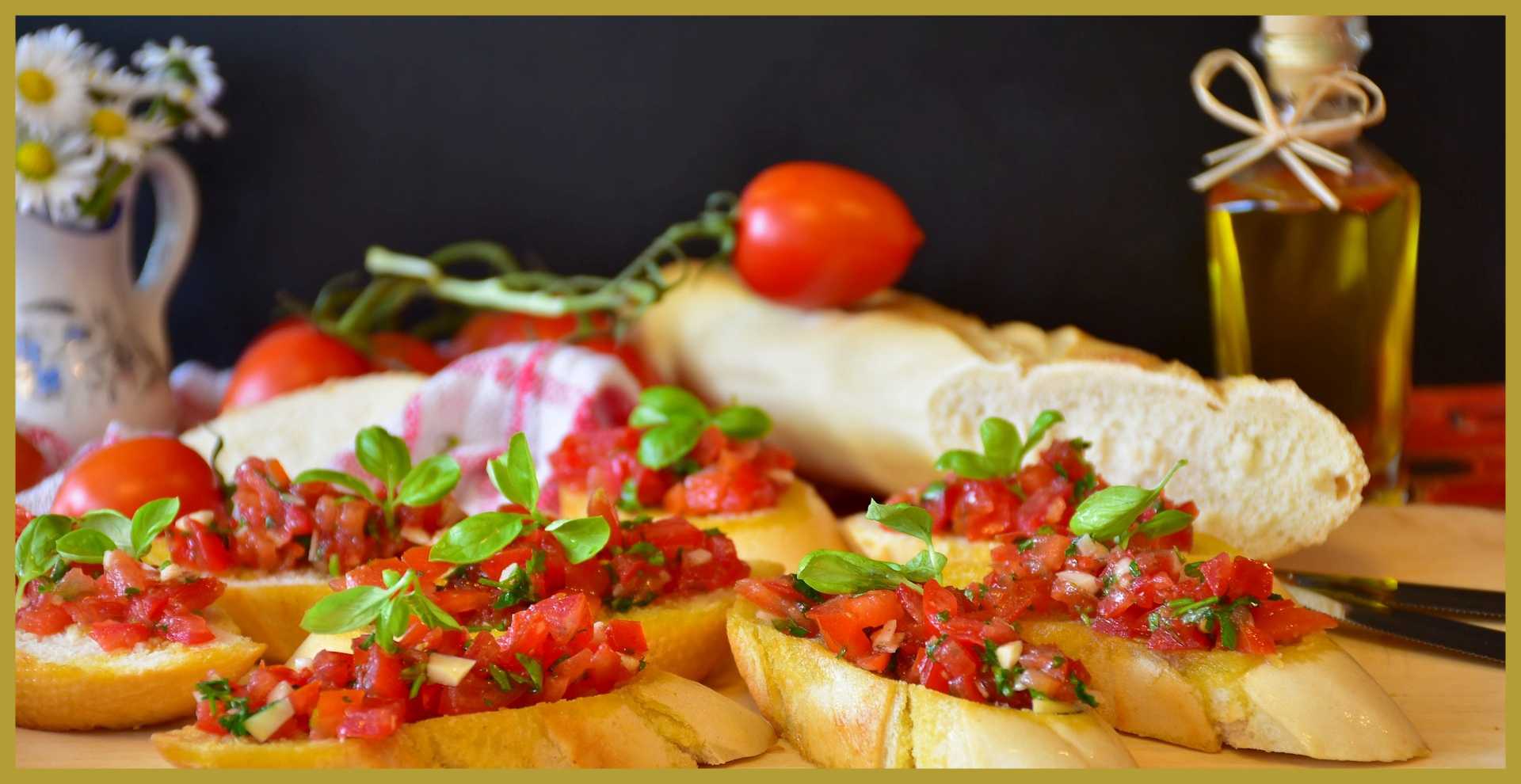- EVOO and health
- 0 likes
- 12292 views

Even a few little changes in our diet may lead us to an important health improvement, and the mediterranean diet benefits may help us to achieve this goal. Keep reading, we explain how..
The Mediterranean Diet is the way of understanding, preparing and sharing the food of the peoples that formed Western civilization for thousands of years. All this results in a cultural heritage of huge value for all humanity, both for the historical weight and the benefits offered.
What is the Mediterranean diet
The Mediterranean Diet is a philosophy of life based on a way of eating, cooking the food, to share it, to enjoy our environment and our landscape, to live and relate with the medium, to generate art and culture, history and traditions linked to our emblematic foods and its origin.
The term diet comes from the ancient Greek word "diaita", which means lifestyle. This concept perfectly defines the term of the Mediterranean Diet.
It is an extraordinary cultural wealth that embraces all the peoples of the Mediterranean area and consists of landscapes, crops and farming techniques, markets, elaborations, spaces and culinary gestures, flavors and fragrances, colors, gatherings and celebrations, legends and devotions, joys and sorrows and innovation and traditions.
At the crossroads of three continents, with historical burdens and extraordinary cultural influence, the Mediterranean basin has been a crossroads of roads and cultures, ideas, knowledge and people, which over more than eight thousand years has been catalyzing much of the progress that has shaped Western civilization.
The Mediterranean relates landscape, agriculture and culture perfectly. "The geographical features, climate and historical events have led to a selection of food and a way of cooking in the Mediterranean basin."
Mediterranean diet pyramid
The traditional pyramid of the mediterranean diet has been update recently, addapting to the current lifestyle. According to the Mediterranean diet foundation initiative, the new pyramid follows the pattern of the previous one: it places at the base the foods that must sustain the diet, and relegates to the upper strata, graphically narrower, those that should be consumed in moderation.
But also cultural and social indications closely linked to the Mediterranean lifestyle are added, from a concept of diet understood in a broad sense. It is not just about giving priority to a certain type of food, but about the way to select them, to cook them and to consume them. It also reflects the composition and number of rations of the main meals.

Mediterranean diet plan
1. Use olive oil as the main addition fat.
2. Consume foods of vegetable origin in abundance: fruits, vegetables, legumes and nuts.
3. Bread and food from cereals (pasta, rice and especially whole products) should be part of the daily diet.
4. Unprocessed, fresh and seasonal foods are the most healthy ones.
5. Consume dairy products every day, mainly yogurt and cheeses.
6. Red meat should be consumed in moderation and, if possible, as part of stews and other recipes. Processed meats, in small quantities and as ingredients for sandwiches or other meals.
7. Consume fish in abundance and eggs in moderation.
8. Fresh fruit should be the usual dessert. Sweets and cakes should be consumed occasionally.
9. Water is the most important drink in the Mediterranean. The wine should be taken in moderation and during meals.
10. Physical activity every day, as it is so important. Avoid for all means sedentary life.
Mediterranean diet benefits
According to a recently Harvard University research, the exchange of our saturated fat diet (butter, meat...) with foods from the Mediterranean diet (grains, plant proteins...) can help us to reduce heart problems in the future in 10% over a time of 28 years.
Assistant Professor Qu Sun, a member of the research published in the British Medical Journal, provided an example: “One cup of whole-fat milk roughly contains 5 grams of saturated fat, which is equivalent to 2 percent energy for an average adult. For an individual who reduces whole-fat milk intake by one cup every day for twenty years, the health effects can be quite significant. So I think the 12-percent reduction of risk is not really surprising,” he said.
This Professor recommends us to replace fat products with Mediterranean diet foods, which are full of healthy fat and nutrients. Other foods are fruits, vegetables, dried fruits, legumes and organic products.
Mediterranean diet against Diabetes
Nowadays, there is a lot of people diagnosed with type 2 diabetes. Type 2 diabetes is predominantly a lifestyle disease, coming from a poor food habits. According to the American Heart Association, “at least 68 percent of people age 65 or older with diabetes die from some form of heart disease; and 16 percent die of stroke.”
A dietary pattern with several combinations of nutrients (like Mediterranean Diet) can reduce health risks and provide beneficial health advantages. Because of this, to eat healthy food is so important in our diet, for stopping the diabetes when we are old.
Mediterranean diet helps to keep cognitive functions
There new studies that confirm how beneficial is olive oil and the Mediterranean diet for the cognitive function. One of them, Australian, put participants from the ages of 19 years to over 75 around the world. Close to the 70% of the results said that this Mediterranean diet and its products were good to slower cognitive decline, a lower risk of Alzheimer’s, and improved brain function.
One of this study’s authors, explained why a Mediterranean diet helps to keep cognitive functions:
“the Mediterranean Diet offers the opportunity to change some of the modifiable risk factors. These include reducing inflammatory responses, increasing micronutrients, improving vitamin and mineral imbalances, changing lipid profiles by using olive oils as the main source of dietary fats, maintaining weight and potentially reducing obesity, improving polyphenols in the blood, improving cellular energy metabolism and maybe changing the gut micro-biota, although this has not been examined to a larger extent yet.”

Mediterranean diet and olive oil
Olive oil is the main fat source of the mediterranean diet. In Spain, we consume olive oil daily, almost for everything, and is a very important product for our culinary culture, our culinary tradition and our image abroad
Centuries of history have produced a natural selection of crops that have better survived the historical course and which are the which make up the famous Mediterranean trilogy, wheat, olive and wine. These basic foods have shared with others the genuine and differentiating protagonism of all Mediterranean cultures.
It is no coincidence that olive oil is one of the most studied foods in the scientific world. Thousands are the studies that for years have been carried out to know in depth all the benefits that the use of olive oil as the main source of fats in the Mediterranean Diet, and many are already known and proven benefits and that are due to its unparalleled composition among which its high content of monounsaturated fatty acids and minor components such as squalene, polyphenols, natural antioxidants, etc. stand out, resulting in proven healthy effects endorsed by OMS.
How to achieve Mediterranean diet goals
We share a few advices to follow the Mediterranean Diet without spending too much time and money:
- Don´t eat fast food: when we do the groceries, we will remove any fast food from the list (no exception). It is much easier than it looks. Nowadays, markets provide a huge quantity of healthy options. We just need to put them together.
- Cook big quantities: cook big quantities of your healthy mediterranean food, even if you are one or two at home. You can always spread your food across your week and eat healthy 7 days a week.
- Do it yourself: make our own bread, cereals, etc. It's healthier, cheaper and fun.
- Grow fruits and vegetables at home: stop depending on someone else to eat your food.
- Olive oil changes everything: if you think your meal is tasteless, use olive oil before and after the food preparation. It will make a difference.
Mediterranean diet menu
We can choose many mediterranean food for our daily meals, but maybe you don´t know how to begin, for that reason we would like to share some basics to follow the healthy mediterranean diet.
One or two rations per food, in the form of bread, pasta, rice, cuscus or other. Must be preferably whole grains, since some nutrients (magnesium, phosphorus, etc...) and fiber, can be lost in the processing.
The vegetables should be present both in lunch and dinner. Approximately two rations in every take, At least one of them should be raw. The variety of colors and textures contributes diversity of antioxidants and protective substances.
For enjoy a mediterranean diet breakfast you can choose for example, toasted bread with tomatoe and of course olive oil, and if you eat some fruit like orange juice, or an apple, will be the perfect breakfast, althouh you can add some nuts to the menu if you like. This is a typical breakfast here in Spain, and if you try, we are sure you will like it.
You must guarantee the daily drink of between 1.5 and 2 liters of water. A correct hydration is essential to maintain a good balance of body and water, whether the needs vary according to the age of the people, the physical activity level, the personal situation and the climatic conditions. In addition to drinking water directly, the liquid contribution can be completed with herbal infussions with moderate sugar and low fat and salt.

To end this post, we must warning, nowadays there is a threat on the horizon: the Mediterranean diet is being abandoned and this is a huge risk. The influence of globalization and sociocultural changes they have brought with them new customs and habits and less healthy foods.
The progressive loss of the Mediterranean Diet is already having consequences in our health, and its disappearance leads to lower consumption of Mediterranean foods what can cause a decrease in production, abandonment of rural territories and landscape degradation.
For that motive, we would like to remind you how important is to eat healthy food and follow healthy lifestyle habits, which include avoiding the sedentary life, which also implies practicing some sport, and in this, not even the most older people will have an excuse, because for example walking is a very healthy sport, affordable and recommended for all ages.
If we follow these tips we will be helping our body and we will have a better quality of life. Please do not hesitate to contact us if you need more further information about what is the mediterranean diet, we will help you with our especialized advice.
